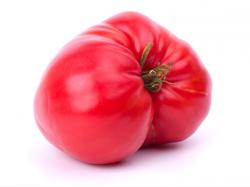Food Marketing In 2014 Will Be Ugly
December 31, 2013 | 2 min to read

Beauty is so boring, or so declares advertising firm JWT (WPPGY). Its 2014 trends report predicts that next year will be one to be “proudly imperfect”—including in the world of food. The rugged hand-made look is already spreading, from imperfectly shaped “artisan” pizzas at Domino’s (DPZ), to uneven “carving board” cuts of Oscar Meyer (KRFT) turkey, to eggs that aren’t shaped like discs in McDonald’s (MCD) Egg White Delight McMuffins.
“Imperfection and even outright ugliness—the quirky, the messy, and the flawed—are taking on new appeal in a world that’s become neatly polished and curated,” the report states. It goes on to explain how everything, including but not limited to selfies (duck face), modeling (brands are crowdsourcing “real people models”), and parents (enter the Type A-minus mother), is embracing fallibility. It’s ostensibly a symptom of a newfound appreciation for individuality and authenticity. We are ready for the red pill.
Of course, this is not the first time people have rejected the flawless as fake. Embracing authenticity—and its inherent flaws—has been the anthem of generations. In the tradition of trend forecasting, the imperfectionism discussed in JWT’s report never goes past the superficial. In food, it suggests merely that next year we’ll see more food that looks imperfect. Take the turkey in Oscar Mayer’s Carving Board line of sliced meat. It’s cut thick and uneven to look like home-cooked leftovers, but as JWT explains, that requires a process that took the company two years to develop. The so-called imperfection of the product is as deliberate as it is false. Packaging actual leftover meat—or any product with more serious flaws, for that matter—likely wouldn’t be as appetizing to consumers.
To read the rest of the story, please go to: Bloomberg Businessweek
